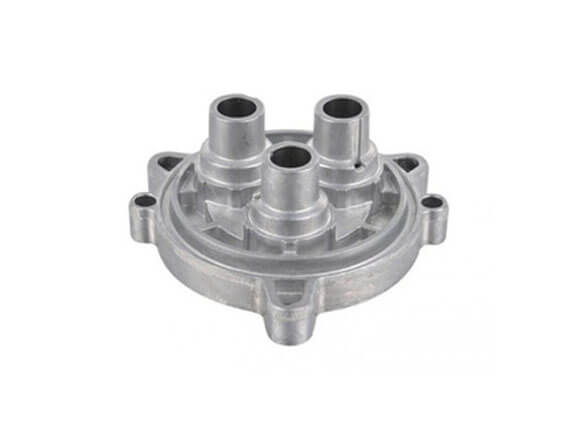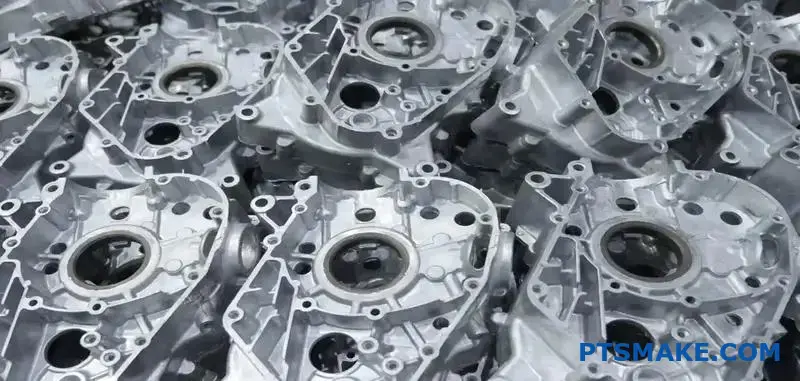Discover the Advantages of Aluminum Casting in Modern Manufacturing
Aluminum casting has become a crucial process in contemporary production. Its light-weight yet durable nature provides substantial benefits for numerous sectors. The capability to attain detailed designs and maintain tight resistances contributes to its allure. Aluminum Casting Company. In addition, the cost-effectiveness and ecological advantages make it a sustainable choice. As makers look for innovative solutions, the role of aluminum casting remains to progress. What certain applications and advantages wait for expedition in this vibrant area?
Light-weight Yet Solid: The Advantages of Aluminum
Although numerous materials are made use of in production, aluminum stands out because of its amazing mix of lightweight properties and exceptional stamina. This unique characteristic makes aluminum a suitable choice for numerous applications, especially in industries such as auto, aerospace, and building and construction. Its reduced thickness enables much easier handling and transport, adding to reduced power usage during manufacturing and assembly procedures.
Aluminum's strength-to-weight ratio is remarkable, making it possible for manufacturers to develop resilient elements without adding unneeded bulk. This particular is especially beneficial in industries where weight decrease can result in boosted fuel effectiveness and overall performance. In addition, aluminum's resistance to rust boosts the longevity of items, further solidifying its charm in modern-day production.
Ultimately, the lightweight yet strong nature of aluminum placements it as a preferred material, promoting technology and effectiveness across multiple industries. Makers significantly identify that these benefits can result in considerable innovations in design and functionality.
Precision and Complexity in Design
As producers accept the abilities of aluminum casting, they find new methods for precision and intricacy in layout. This production procedure permits the production of detailed forms and thorough attributes that typical approaches often struggle to achieve. The fluidity of molten aluminum enables it to fill up complicated mold and mildews, causing parts with limited resistances and great surface area coatings.
This precision is particularly helpful in sectors such as aerospace and auto, where specific requirements are essential for performance and safety. Aluminum casting also accommodates innovative designs that enhance functionality without endangering structural integrity.

Cost-Effectiveness and Effectiveness
Cost-effectiveness and effectiveness are paramount considerations for makers discovering aluminum casting as a production technique. Aluminum casting deals significant cost benefits because of its reduced material expenses contrasted to other steels (Precision aluminum casting). The light-weight nature of aluminum reduces delivery and handling expenditures, and its outstanding thermal conductivity permits for quicker cooling times during the casting process, boosting overall production rate
Aluminum's flexibility allows suppliers to develop intricate forms and layouts, minimizing the need for additional machining or assembly. This streamlining of production not only decreases labor prices however likewise reduces preparations, enabling business to respond quickly to market demands.
The resilience and corrosion resistance of aluminum castings add to longer item life expectancies, decreasing replacement costs over time. As an outcome, manufacturers can achieve an equilibrium of high-grade result and minimized operational expenses, making aluminum casting an increasingly eye-catching alternative in contemporary manufacturing.
Ecological Sustainability of Aluminum Casting
Aluminum casting attracts attention as an environmentally sustainable production option, especially as a result of its recyclability and decreased eco-friendly footprint. The procedure allows for the useful link effective usage of over at this website aluminum, a material that can be reused forever without losing its properties. This particular substantially decreases the demand for virgin aluminum, therefore conserving natural sources and decreasing power consumption related to extraction and handling.

Applications Throughout Industries: From Automotive to Aerospace
While varied industries remain to look for innovative materials for production, aluminum casting has actually verified to be a flexible service across fields such as automobile and aerospace. In the automotive sector, aluminum castings add to light-weight vehicle layouts, improving gas efficiency and performance. Parts like engine blocks, transmission real estates, and wheels take advantage of aluminum's strength-to-weight proportion.
Likewise, in aerospace, aluminum casting plays a considerable function in creating complex components that need high longevity and reduced weight. Aircraft parts such as braces, landing equipment, and special info architectural frameworks utilize aluminum for peak performance and safety.
The flexibility of aluminum casting enables it to provide to various other industries, consisting of consumer electronic devices, aquatic, and industrial equipment. This flexibility not just satisfies the specific needs of various applications yet likewise supports continuous innovation in making processes. Consequently, aluminum casting stays a key player in modern manufacturing throughout various sectors.
Often Asked Questions
Exactly How Does Aluminum Casting Contrast to Other Steel Casting Processes?
Aluminum casting deals superior strength-to-weight ratios, faster air conditioning rates, and superb corrosion resistance contrasted to various other steel casting procedures. These benefits make it excellent for numerous applications, enhancing effectiveness and performance in production.
What Are the Regular Lead Times for Aluminum Casting Projects?
Common lead times for aluminum casting jobs vary from two to eight weeks, depending upon variables such as intricacy, order dimension, and production capability. Efficient planning can aid decrease hold-ups and improve job timelines.
Can Aluminum Casting Be Utilized for Intricate Designs?
Aluminum casting can indeed accommodate intricate designs. Aluminum Casting Company. Its fluidness permits detailed patterns and forms, making it ideal for complicated components in numerous sectors. This adaptability improves design liberty while preserving architectural honesty and performance
What Post-Processing Options Are Available After Aluminum Casting?
Post-processing options for aluminum casting include machining, polishing, surface treatments, anodizing, and welding. These techniques enhance the finish, improve dimensional accuracy, and increase corrosion resistance, thus enhancing the final product's performance and aesthetic appeal.
How Do Temperature Changes Affect Aluminum Casting Quality?
Temperature level adjustments greatly influence aluminum casting top quality by influencing fluidness, solidification rates, and prospective problems. Rapid air conditioning can lead to raised brittleness, while too much warm may cause warping or insufficient dental filling of molds during casting.
Aluminum casting has actually arised as an essential process in modern production. As manufacturers embrace the abilities of aluminum casting, they find brand-new opportunities for precision and complexity in design. Aluminum casting processes generally produce less greenhouse gas discharges contrasted to various other metal casting methods. While diverse sectors continue to seek cutting-edge products for manufacturing, aluminum casting has confirmed to be a functional option across markets such as auto and aerospace. In the automotive industry, aluminum spreadings contribute to lightweight lorry layouts, boosting gas effectiveness and performance.